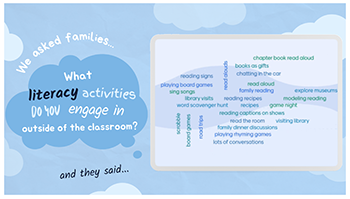Collaboration, networking, knowledge sharing, professional learning, literacy leadership – these are all definitions we use to describe Learning Ally’s Educator Community, now 5,300 educators strong with another 2,500 members on Instagram. … Read more
Categories: Education CommunityLearning Ally Blog: Access and Achievement
Now more than ever, people with learning and visual disabilities are flourishing in the classroom, launching productive careers and becoming assets in their communities. This blog spotlights remarkable individuals who demonstrate that having a visual or print disability is no barrier to educational success.
It was late October when Dr. Molly Ness, a reading researcher and Vice President of Academic Content at Learning Ally, received a greeting card that inspired a new path for… Read more
Categories: Assistive Technology, DyslexiaLiteracy development isn’t confined to the classroom; it’s a collaborative effort that extends to the home, with parents and caregivers playing a crucial role. Engaging students at home and on… Read more
Categories: Featured, UncategorizedThe Power of Audiobooks with Text in Supporting the Education of Students with Dyslexia Dyslexia, a learning disorder that affects a person’s ability to read and process written language, can… Read more
Categories: Assistive Technology, Audiobook Library, Dyslexia